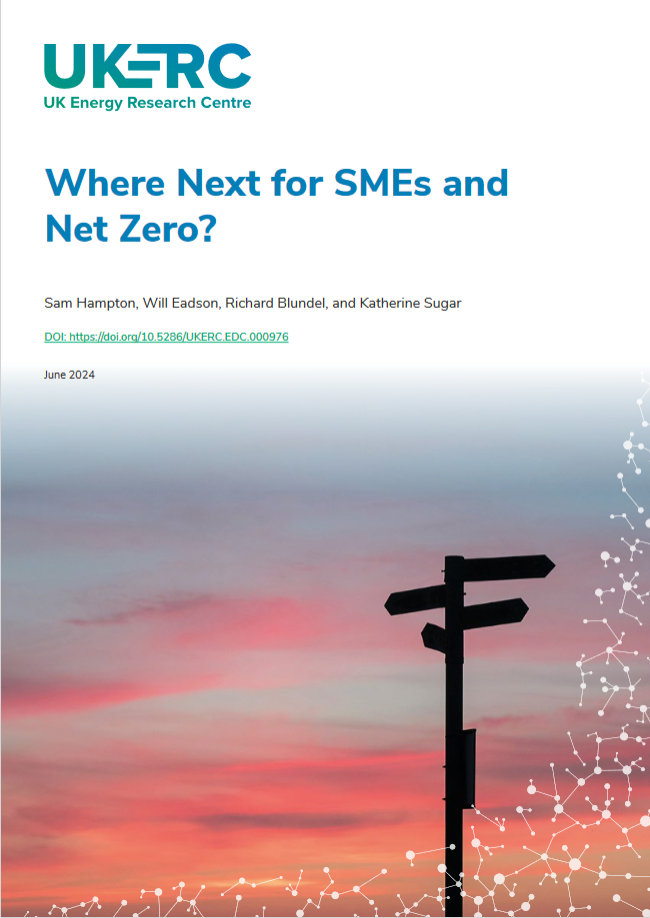SME Governance for Net Zero ('GoZero')

This UKERC-funded research project (September 2022 to June 2024), has provided a robust evidence base to support the multi-level governance of SME decarbonisation across the four UK nations. It examined current policies, consulted policy makers, industry representatives, support organisations and business owners, and identified the key changes needed to facilitate the large-scale decarbonisation of the UK’s SME population over the coming decade.
The project partners were: The University of Oxford (Dr Sam Hampton and Dr Katherine Sugar), The Open University (Prof Richard Blundel), and Sheffield Hallam University (Prof Will Eadson).
This is one of a number of research projects linked to the Centre for Social and Sustainable Enterprise (CSSE) in the Faculty of Business and Law. It was also supported by the OU’s knowledge exchange teams in Cardiff and Belfast.
Project outputs will include additional research publications and a ‘WISE in 5’ policy briefing. Project team members are also guest editing a Special Issue of the International Small Business Journal, ‘SMEs and Climate Action: Policy and Governance for Transformative Change’, scheduled for publication in February 2027.
Background

Small and Medium-sized Enterprises (SMEs) are essential, yet largely neglected actors in the governance of the UK’s energy transition. Collectively, SMEs consume about 50% of commercial and industrial energy, but are exempt from many business-focused energy and decarbonisation policies.
Policies targeted at smaller firms tend to focus narrowly on short-term financial incentives and provision of technical advice. Most schemes are administered and delivered locally, resulting in a patchwork of approaches taken across the UK, with limited coordination and variable success.
As a result, SMEs often struggle to find reliable, relevant information on pathways to achieving Net Zero, while policymakers find it difficult to respond effectively given the sheer heterogeneity of the SME population and the relatively informal nature of firm-level decision-making.
The unprecedented energy price increases of the early 2020s are creating an existential threat to many smaller businesses. Awareness of the threat of climate change is also growing, bolstered by recent experiences of extreme weather events. This growing appetite for action in the business community has highlighted significant limitations in the existing governance arrangements.

Related publications
-
Final report and appendices, published by UKERC (2024), ‘Where Next for SMEs and Net Zero?’
-
Briefing paper, published by UKERC (2024), ‘Seven Principles of Place-Based Net Zero Policy for SMEs.’
- Research article published in Global Environmental Change (2023) ‘Crisis and opportunity: Transforming climate governance for SMEs.’
- Feature article published in The Conversation (2023) ‘How smaller businesses can become net-zero influencers and enablers.’
Funding body
UK Energy Research Centre (UKERC), Flexible Fund (Round 3)
